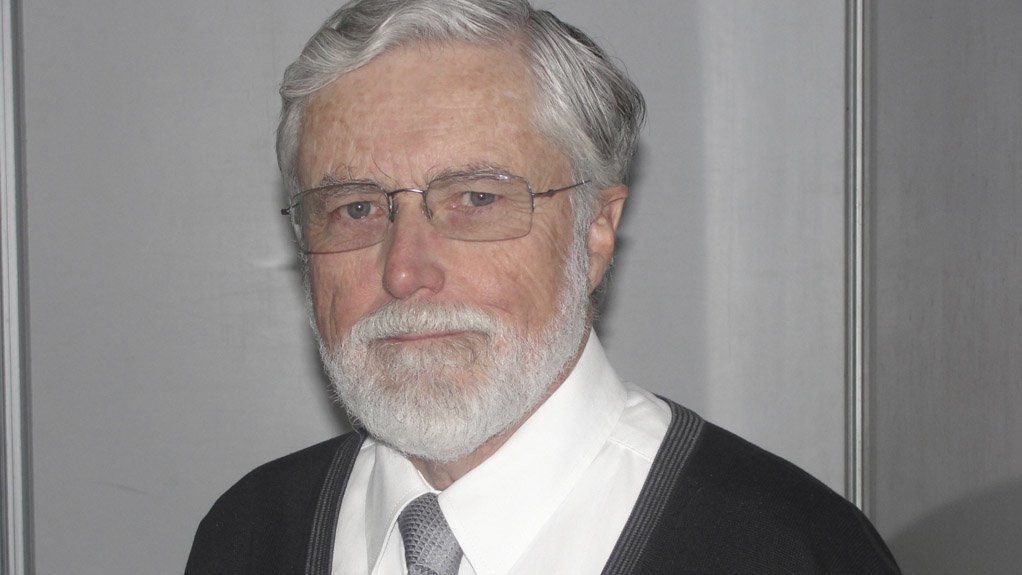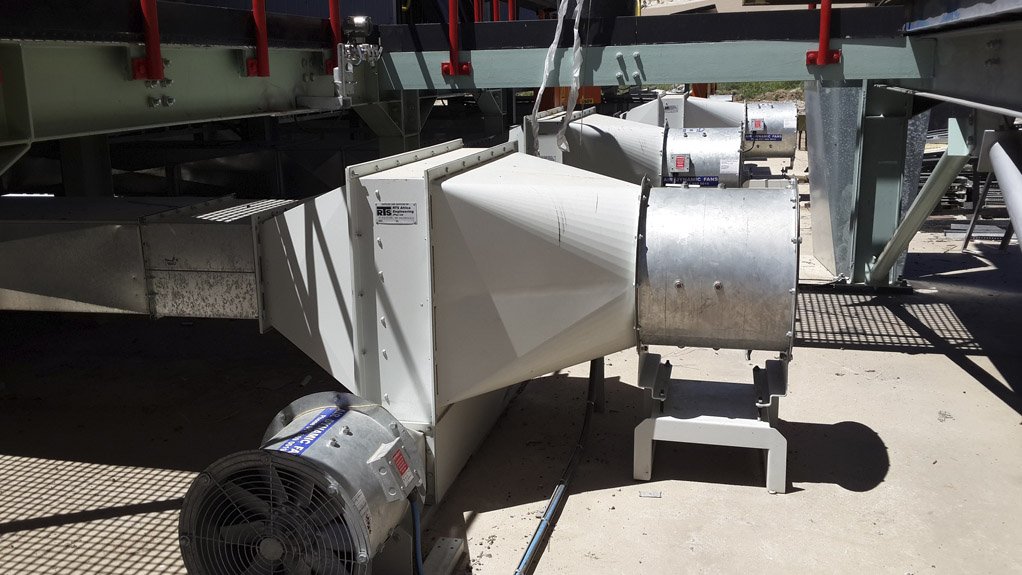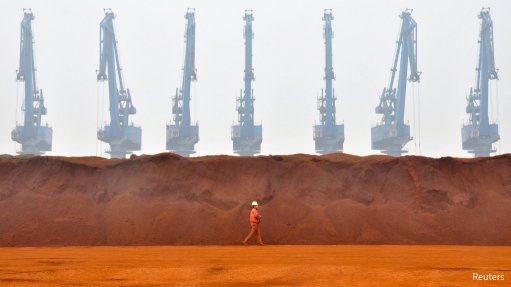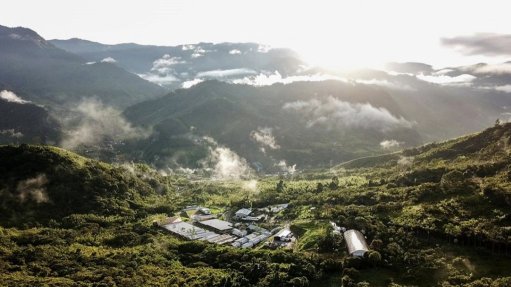Benefits of spin filters emphasised



IAN FRASER Dust can be a major problem in the mining sector, notably in working spaces and control rooms
DUST SOLUTION Spin filter units are a high-efficiency application of cyclone technology, with air passing through the spin wall driven by a fan
With the South African mining industry facing the prevailing costs and uncertainties in the labour market that it does, industrial technology and solutions specialist RTS Africa Engineering says its spin filters offer an ideal solution by reducing dependence on maintenance personnel.
“Not only are spin filters extremely efficient in heavy dust-load elimination in surface and underground mining environments, but the system will also provide years of virtually maintenance- and replacement-free service,” states RTS Africa Engineering MD Ian Fraser.
The use of inertial spin filters from Tshwane-based RTS Africa as an effective solution to dust build-up in underground mining operations continues to increase, particularly in control panel and variable-speed drive back-channel cooling applications, says the company.
Fraser says this improved uptake correlates with the experience of users in the mining sector who are starting to reap the technology’s benefits, which include simple installation, limited maintenance, high efficiency and a long service life of between 10 and 20 years.
“Dust can be a major problem in the mining sector, notably in working spaces and control rooms. Spin filters offer a number of advantages, the most compelling being that they require virtually no maintenance,” he points out.
Fraser explains that spin filter units are a high-efficiency application of cyclone technology, with air passing through the spin wall driven by a fan. “The dust-laden air passes through the spin wall, where the dust is removed by inertial forces and then vented back into the space from where it originated.”
RTS Africa emphasises that, based on life-cycle costing, inertial spin filters are the most economical solution for removing the heavy dust-loads generated by the mining process, providing dust-free air for underground mining operations.
Excessive dust can, among other challenges, adversely impact on the health of underground mining personnel, damage electrical equipment and result in fines, owing to the contravention of increasingly rigorous environmental legislation.
“The problem can be exacerbated by mine ventilation systems consisting of large fans that force air down ducts into mine shafts and underground working areas, carrying hazardous airborne dust in increasing quantities and densities,” Fraser stresses.
He highlights that inertial spin filters are an effective and practical solution to these challenges, although investing in the technology will initially cost users more than a conventional filtration system.
RTS Africa, Fraser asserts, constantly updates its technologies and explores new applications and, while the concept of spin filters is not new, RTS Africa has been at the forefront in introducing this technology to the South African industry – more especially the mining industry .
In addition, Fraser points out that other practical applications of spin filter technology include the protection of compressors that are operating underground, where it would be necessary to achieve the removal of about 98% of dust of particles 2 µm in size. This is another scenario where fine secondary filters can be used with inertial spin filters installed as the primary system.
“However, in spaces such as machinery areas, inertial spin filters provide a more than adequate level of dust removal and no secondary filtration is required,” Fraser notes.
Moreover, he adds, RTS Africa’s inertial spin filters have evolved since “simple units” were installed at South African mines in the early 1990s.
Using the imported module from the US, the application engineering is carried out in South Africa and all design and fabrication are done locally, Fraser explains.
All spin filter units supplied by RTS Africa are purpose-built to specification and the self-cleaning system does not require any conventional filter media. The only moving parts are electric motors, which require limited and infrequent maintenance.
The problem with conventional filtration systems, says Fraser, is that they tend to require costly maintenance and filter replacement, as they frequently clog up. This can lead to operations being delayed, as maintenance can be time consuming.
He adds that the spin filter process is especially effective where workers are confined to closed spaces such as in workshops or control rooms.
“Clean, dust-free air can be fed into the space using spin filters, which will remove 98% of all dust particles 15 µm and larger, and 80% of dust larger than 5 µm.”
He illustrates that, when it comes to removing very fine breathable dust – 1 µm to 2 µm – spin filters offer an effective solution when used in conjunction with fine secondary filters.
“The main problem ventilation engineers face is contriving a filtration system that will remove the very fine dust while ensuring that the fine filters are not blinded by larger particles, which represent the greatest mass. This would mean a continuous replacement of the filter media,” Fraser notes.
He recommends using RTS Africa’s inertial spin filters as primary filters to continuously remove heavy dust particles, thus preventing the fine filters from becoming rapidly overloaded. The fine secondary filters will, as a result, require much less attention and replacement, he concludes.
Article Enquiry
Email Article
Save Article
Feedback
To advertise email advertising@creamermedia.co.za or click here
Press Office
Announcements
What's On
Subscribe to improve your user experience...
Option 1 (equivalent of R125 a month):
Receive a weekly copy of Creamer Media's Engineering News & Mining Weekly magazine
(print copy for those in South Africa and e-magazine for those outside of South Africa)
Receive daily email newsletters
Access to full search results
Access archive of magazine back copies
Access to Projects in Progress
Access to ONE Research Report of your choice in PDF format
Option 2 (equivalent of R375 a month):
All benefits from Option 1
PLUS
Access to Creamer Media's Research Channel Africa for ALL Research Reports, in PDF format, on various industrial and mining sectors
including Electricity; Water; Energy Transition; Hydrogen; Roads, Rail and Ports; Coal; Gold; Platinum; Battery Metals; etc.
Already a subscriber?
Forgotten your password?
Receive weekly copy of Creamer Media's Engineering News & Mining Weekly magazine (print copy for those in South Africa and e-magazine for those outside of South Africa)
➕
Recieve daily email newsletters
➕
Access to full search results
➕
Access archive of magazine back copies
➕
Access to Projects in Progress
➕
Access to ONE Research Report of your choice in PDF format
RESEARCH CHANNEL AFRICA
R4500 (equivalent of R375 a month)
SUBSCRIBEAll benefits from Option 1
➕
Access to Creamer Media's Research Channel Africa for ALL Research Reports on various industrial and mining sectors, in PDF format, including on:
Electricity
➕
Water
➕
Energy Transition
➕
Hydrogen
➕
Roads, Rail and Ports
➕
Coal
➕
Gold
➕
Platinum
➕
Battery Metals
➕
etc.
Receive all benefits from Option 1 or Option 2 delivered to numerous people at your company
➕
Multiple User names and Passwords for simultaneous log-ins
➕
Intranet integration access to all in your organisation




















